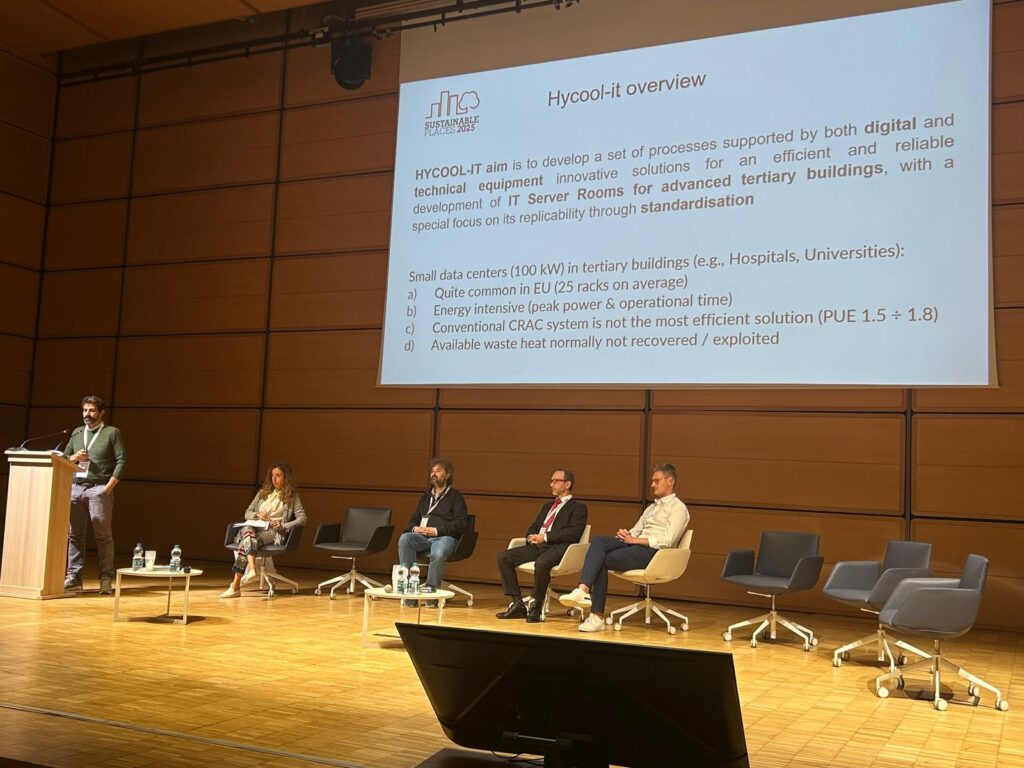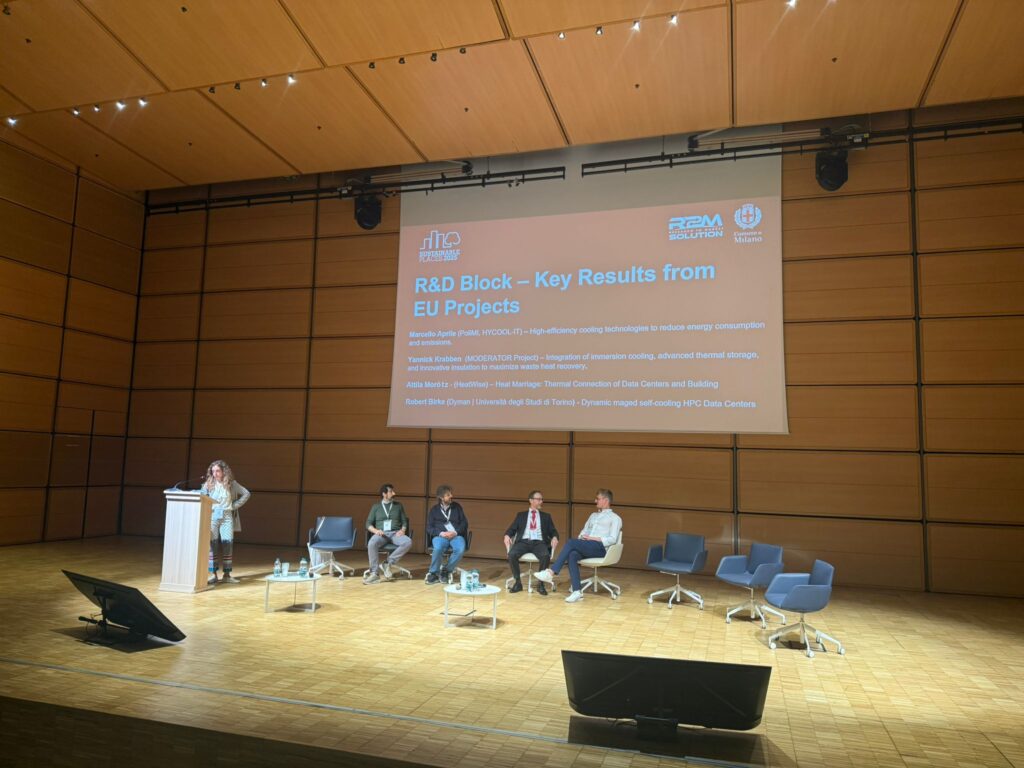During the last edition of Sustainable Places conference held in Milan at the Monte Rosa 91 Conference Centre from the 8th to the 10th October our colleagues from Politécnico de Milano Marcello Aprile and Rossano Scocia, Eduard Loscos from IDP and Fausto Sainz Salces from COMET and Sander Smit and Fayaz Ahmed from R2M attended the session where Marcello -who is the project coordinator-presented Hycool_IT advances on the Italian pilot at the “Data Centers, Digital Twin & AI for Sustainability track”. Co-organized with the Italian Proptech Network and with contributions from European research projects and market leaders, the session will examine how new technologies can enhance energy efficiency, resilience, and the environmental performance of digital infrastructures, a domain that is becoming increasingly strategic for Europe’s competitiveness. A strategic forum bringing together researchers, technology providers, and industry stakeholders to explore how data centers, digital twins, and artificial intelligence can accelerate sustainability in the built environment. From energy optimization to urban resilience and decarbonization, the event provides a unique platform for knowledge exchange, cross-sector collaboration, and the dissemination of digital solutions in support of the green and digital transition.


The Hycool_IT consortium is working to develop a set of processes supported by both digital and technical equipment innovative solutions for an efficient and reliable development of IT Server Rooms for advanced tertiary buildings, with a special focus on its replicability through standardisation.
Marcello explained that after several months of works the project took a step further for the redesign of 100 kW server room cooling system with more efficient chillers and waste heat reuse. The new solution optimizes energy consumption, lowering at the same time electricity consumption for IT equipment cooling and natural gas consumption for space heating.
The project is also advancing on the Digital Twin platform for simulation model tracking and software in the loop control optimization. The architecture is based on standard ISO 23247-2 and the ISO 19650. The integrated ecosystem called the simulation model tracking system – SMTS, now ready to be deployed in beta testing.
We are looking forward to present further results in the near future.